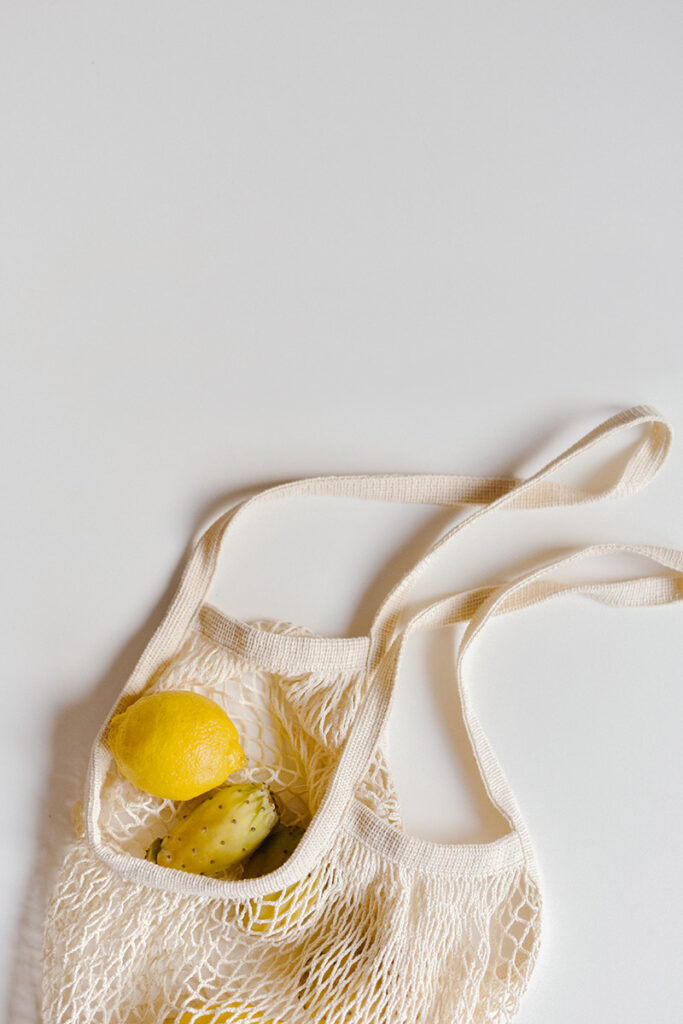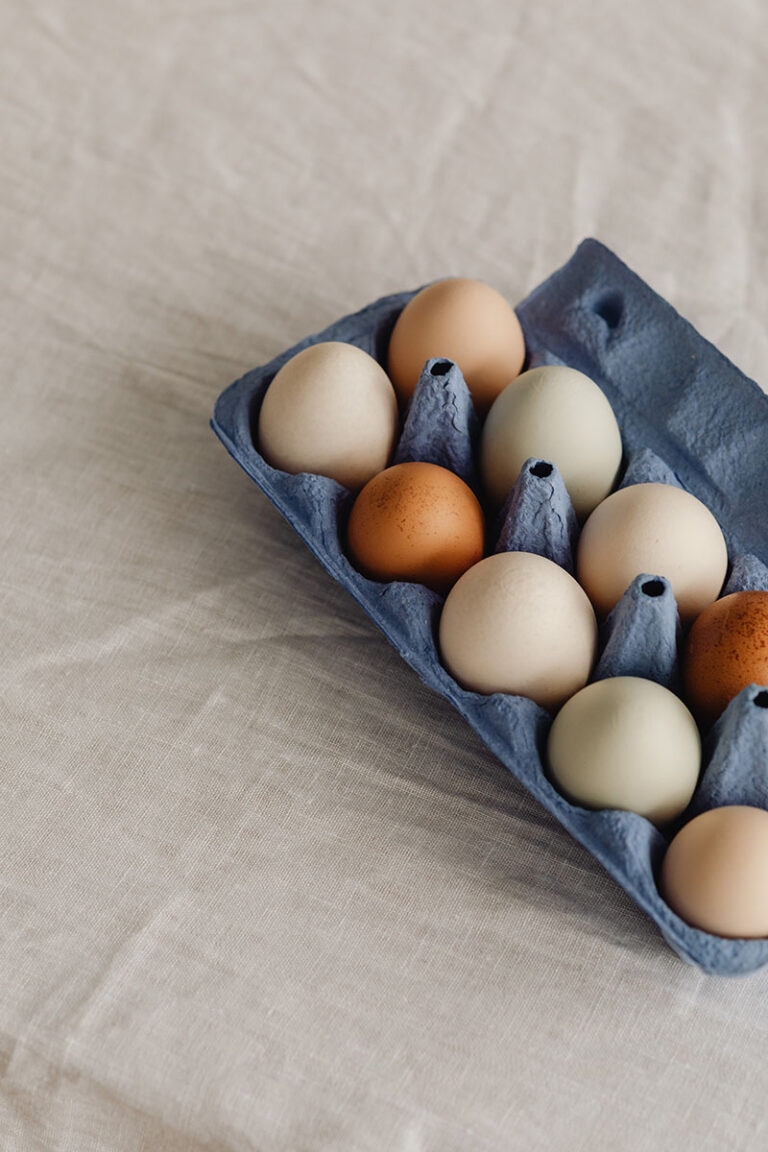10 Ways to Adopt a Zero Waste Lifestyle
Have you ever wondered if there were ways to reduce waste and make a positive impact on the environment?
Adopting a zero waste lifestyle can be one of the most effective ways to achieve this. This guide will provide you with 10 ways to embark on your journey to sustainable living.
Before diving into the ways to adopt a zero waste lifestyle, it’s important to understand the concept of zero waste.
It’s also crucial to recognize the importance of minimizing our carbon footprint and how adopting a zero waste lifestyle can contribute to this cause.

The Zero Waste Concept
When considering adopting a zero waste lifestyle, it might seem like the goal is to produce no waste at all. However, while that’s an ideal to strive for, it’s important to recognize that it’s nearly impossible to completely eliminate waste.
Zero waste is more about minimizing waste as much as possible. This includes all types of waste, not just physical trash.
A zero waste lifestyle seeks to send as little as possible to the landfill, conserve resources, and minimize the carbon emissions our activities generate.
Definition of Zero Waste Lifestyle
Having a zero waste lifestyle means striving to create as little waste as possible. This doesn’t only include physical waste but also the waste of resources and energy.
It’s about making conscious choices to reduce, reuse, and recycle. A zero waste lifestyle is not about perfection, but about making consistent efforts to reduce our waste and carbon emissions.
Zero Waste Lifestyle & the Environment
Adopting a zero waste lifestyle is not just beneficial for us as individuals, but also for the environment. Our current lifestyles often generate a large amount of waste, much of which ends up in landfills.
This waste contributes to pollution and climate change. With this lifestyle, we can help to reduce this waste, minimize our carbon footprint, and contribute to a more sustainable future for our planet.

Steps to Implement a Zero Waste Lifestyle
Adopting a zero waste lifestyle may seem daunting at first, but with a few simple steps, it can become a rewarding and fulfilling journey.
The key to success lies in starting small, making conscious choices, and gradually incorporating more zero waste practices into your daily life.
1. Assess Your Current Waste Habits
Embarking on a zero waste lifestyle starts with a self-evaluation of your current waste habits. It’s important to recognize the amount of waste produced by your everyday activities.
This analysis could reveal areas of improvement such as a high use of single-use plastics or substantial food waste.
It might also highlight the frequent use of disposable products that could be replaced with reusable alternatives.
2. Create a Zero Waste Action Plan
After assessing your waste habits, the next step is to compile a thorough zero waste action plan. This strategy outlines the changes needed for a zero waste lifestyle and how to implement them effectively.
It might involve buying reusable items like food containers, starting a composting system for organic waste, or exploring local recycling options for items that are difficult to recycle. Making these zero waste swaps will significantly decrease your packaging waste.

3. Make Use of Reusables
The use of plastic bottles, specifically disposable water bottles, is one of the most damaging environmental habits.
These bottles take at least 1000 years to decompose, contributing significantly to climate change. However, each person can play a part in mitigating this problem by carrying a reusable water bottle.
Reusable water bottles can significantly reduce the waste per person and contribute to avoiding plastic waste. Besides water bottles, other alternatives such as shopping bags can also help in minimizing environmental harm.
Replace Plastic Bags with Reusable Cloth Bags
Plastic bags are a significant contributor to plastic pollution. A simple and effective way to reduce this pollution is by switching to reusable cloth bags.
Unlike plastic bags, cloth bags are durable, washable, and can be used multiple times, making them a perfect alternative for a zero waste lifestyle.
Carry a Reusable Coffee or Tea Mug
For those who enjoy a cup of coffee or tea on the go, carrying a reusable coffee mug can make a significant difference.
Instead of adding to the pile of disposable cups, a reusable mug can be used over and over again, helping to reduce waste and contribute towards a zero waste lifestyle.
Utilize a Reusable Water Bottle
Plastic bottles, especially plastic water bottles, are a major contributor to the waste that ends up in our landfills and oceans.
These disposable water bottles not only contribute to the mounting waste problem but also contribute to climate change through the process of manufacturing and transporting them.
A simple yet effective step towards a zero waste lifestyle is to carry a reusable water bottle. This small change can significantly reduce the number of plastic bottles that end up in the environment.

4. Minimize Food Packaging and Waste
Consider the amount of food packaging that ends up in the trash after a meal. From plastic containers to the transportation of food, it all adds up.
Buy Products in Bulk
Purchasing food and other items in bulk can greatly reduce the amount of packaging waste. Not only does this save you money in the long run, but it also minimizes the waste produced from individual packaging.
Bulk buying encourages the use of reusable containers, further reducing the dependency on single-use plastics.
Ways to Reduce Food Waste in Your Kitchen
Reducing food waste in your kitchen is another effective way to adopt a zero waste lifestyle. This can be achieved by careful meal planning, storing food properly to extend its shelf life, and using leftovers creatively.
Composting kitchen scraps is another great way to reduce food waste and create nutrient-rich soil for your plants.
5. Invest in Repair and Second-hand Items
Instead of buying new items, consider repairing what you already have or buying second-hand. Everyday items, particularly those made from synthetic materials, often contain harmful chemicals and require significant energy to produce.
By repairing or buying second-hand, you reduce the demand for new items, thereby reducing the amount of waste generated.
Repair Your Clothes or Recycle Them
One effective way to embrace a zero waste lifestyle is to repair your clothes instead of discarding them. Not only does this reduce waste, but it also extends the lifespan of your garments.
If a piece of clothing is beyond repair, consider recycling it. Many companies, like Patagonia and H&M, have recycling programs where you can drop off your worn-out clothes.
As a bonus, you might even get a discount for your next purchase. This practice also helps in reducing the need to replace paper towels with cloth substitutes as your old clothes can serve that purpose.
Buy Second Hand Items Whenever Possible
Purchasing second-hand items is another impactful step towards a zero waste lifestyle. From clothes to furniture, opting for used items not only reduces waste but also saves you a considerable amount of money in the process.
Thrift stores, garage sales, and online platforms like eBay or Craigslist are great places to find quality second-hand items. Remember, every item you buy used is one less item that ends up in a landfill.

6. Reduce Paper Usage and Go Digital
Reducing paper usage is a significant step towards a zero waste lifestyle. This includes stopping junk mail, replacing paper towels with reusable cleaning cloths, and opting for recycled or tree-free toilet paper.
With the digital revolution, most information can be stored and accessed electronically, reducing the need for paper. This change could save billions of trees annually.
Stop Junk Mail and Go Paperless
Stopping junk mail and going paperless can significantly reduce your carbon footprint. Junk mail not only clutters your home but also contributes to the emission of several million metric tons of greenhouse gases annually.
Opt to receive electronic statements from your bank, credit card company, and other service providers. You can also sign up for electronic bills and notifications from your utility providers, further reducing the amount of paper waste you generate.
Ditch Your Paper Towels
Paper towels are a major contributor to household waste. Every year, millions of rolls of paper towels end up in landfills.
Instead, opt for reusable alternatives like cloth napkins or microfiber towels. If you have old t-shirts or sheets, you can even repurpose them as cleaning rags.
Not only will you reduce waste, but you’ll also save money on buying disposable paper towels. In addition, consider switching to recycled or tree-free toilet paper to further limit your paper consumption.
7. Implement Composting for Food Scraps
Composting is a valuable practice that significantly reduces the amount of organic waste that ends up in landfills.
By composting food scraps, you not only prevent them from producing harmful methane emissions as they decay, but you also create nutrient-rich soil for your garden.
Plus, it’s an excellent way to replace the use of single-use plastic bags for trash. Instead of throwing away your food waste, composting completes a sustainable cycle that continually nourishes the earth.

8. Make Conscious Choices While Dining and Shopping
Another step towards a zero-waste lifestyle is making mindful decisions when dining and shopping. Grocery shopping, in particular, is an opportunity to reduce waste significantly.
For example, you can opt for products with eco-friendly packaging or buy in bulk to minimize excess packaging.
It’s important to recognize the impact that even small changes can have on waste production and make choices that align with a zero-waste lifestyle.
Ask For “No Straw” at Restaurants
While dining out, a simple step towards reducing waste is asking for no straw with your beverage. Plastic straws are notorious contributors to waste and can take hundreds of years to decompose.
By choosing to skip the straw, you can help reduce the demand for these single-use items and move one step closer to a zero-waste lifestyle.
Pack Your Lunch or Dine-in
Another way to decrease waste is by packing your lunch or dining in. Often, takeout meals come with unnecessary packaging like plastic utensils, paper plates, and other single-use items.
By packing your lunch, you can control the amount of waste produced and choose reusable containers and utensils.
Similarly, dining in reduces the need for disposable packaging, contributing to your overall waste reduction.
Bring Your Own Grocery and Produce Bags to the Grocery Store
Finally, bringing your own bags to the grocery store can significantly reduce the amount of plastic waste you produce.
Instead of relying on the store’s plastic bags, bring reusable cloth or mesh bags for your groceries. This simple change can save hundreds of plastic bags from ending up in landfills each year. Plus, many stores now offer discounts to customers who bring their own bags, so it’s a win-win situation.

9. Encourage Use of Bar Soap Instead of Bottled Soap
One of the most effective steps towards a zero waste lifestyle is to switch from liquid soap to bar soap. Most of the liquid soaps come in plastic bottles, contributing to the increasing plastic waste.
On the other hand, bar soap is typically packaged in materials like paper, which can either be compostable, biodegradable, or recyclable.
In fact, many popular brands that manufacture liquid soap also offer their products in the form of bar soap. By making this simple swap, you can significantly reduce your use of plastic bottles.
10. Observe, Learn and Improve
Adopting a zero waste lifestyle is a continuous process that involves constant observation, learning, and improvement.
It can be enlightening to monitor your waste for a week or two to understand where most of your waste comes from. This exercise can help you identify your biggest waste sources and strategize ways to reduce them.
Remember, the goal isn’t to achieve zero waste overnight, but to continually strive for less waste and make improvements where necessary.

Frequently Asked Questions About Zero Waste Lifestyle
When transitioning to a zero waste lifestyle, it’s common to have questions about its feasibility and impact. Here are some frequently asked questions that can help clarify the concept of zero waste and its benefits.
Q: Is a zero waste lifestyle possible and practical?
A: Adopting a zero waste lifestyle might seem daunting, but it’s both possible and practical. The objective is not to completely eliminate waste, as that is nearly impossible, but to reduce waste as much as possible.
The idea is to strive for a lifestyle that sends the least amount of waste to landfills, conserves resources, and minimizes carbon emissions. With this perspective, a zero waste lifestyle will become a more achievable goal.
Q: How can zero waste benefit the environment?
A: The benefits of living a zero waste lifestyle are numerous and highly impactful for the environment. It helps prevent valuable resources from ending up in landfills and reduces greenhouse gas emissions, which contribute to global warming.
On a personal level, a zero waste lifestyle often leads to healthier choices, as it encourages purchasing food without plastic packaging, which usually means opting for fresher, healthier options.
Thus, adopting a zero waste lifestyle not only benefits the environment but also promotes a healthier way of living.

Putting It All Together: Embracing a Zero Waste Lifestyle
Embracing a zero waste lifestyle is more about minimizing waste rather than completely eliminating it. It’s a journey and not a destination, with the goal being to send as few things to the landfill as possible.
This approach is not only about managing physical waste, but also about conserving resources and reducing carbon emissions.
The simplest ways to start this journey include using reusable cotton bags instead of plastic ones, opting for reusable metal water bottles over disposable cups, and switching to cloth napkins instead of paper ones.
One of the most impactful ways to adopt a zero waste lifestyle is to reassess your food storage practices. Instead of using plastic food containers, consider storing food in glass or stainless steel containers.
This not only reduces the amount of plastic waste generated but also improves the quality of your food storage.
Another strategy is to buy cleaning supplies in bulk and store them in reusable containers. This reduces packaging waste and can also save money.
Furthermore, making conscious choices about the products you buy can have a significant impact on global waste.
Consider investing in durable items that can be repaired instead of replaced. Opt for eco-friendly alternatives when possible, such as LED light bulbs over traditional ones and baking soda as a natural cleaning agent.
Remember, each small step taken towards a zero waste lifestyle contributes to a larger global effort to reduce waste and create a more sustainable future.





